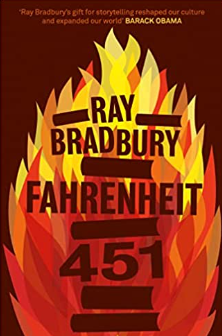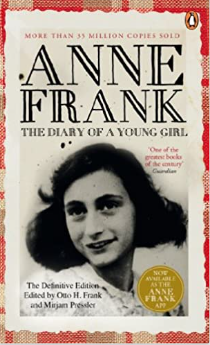Reading For Betterment
“After nourishment, shelter and companionship, stories are the thing we need most in the world.” Philip Pullman
Reading is an essential skill for life. Our philosophy of ‘Reading for Betterment’ places reading at the centre of our curriculum. Our aim is to nurture and inspire all students to become life-long readers.
Our Curriculum actively incorporates a wealth of opportunities for pupils to read independently, read aloud and to be read to, each and every day. We are developing a culture of reading for betterment by:
- Rigorous assessments of reading ages to allow for adaptations to curriculum and classroom pedagogy.
- High quality, swift and impactful intervention for students with low reading ages.
- All subjects provide a variety of reading materials to support the delivery of the delivery and extension of the curriculum.
- Tier 3 vocabulary carefully selected for each subject to ensure disciplinary literacy is embedded.
- “Just Read” form time.
- Literacy Challenge as part of form time personal development
- Dictionaries readily available for use
- Enrichment: library club, house sharing libraries, Book Buzz, Cheshire Book Awards, author events.
Disciplinary Literacy
The Education Endowment Foundation recognises that ‘literacy skills are both general and subject specific’. As such, within each of our subject areas; we support and teach students how to read, write and communicate effectively by:
- Targeted tier 2 and 3 vocabulary instruction explicit in every lesson
- Spellings and definitions regularly tested
- Teaching of vocabulary (including etymology where appropriate)
- Spelling, punctuation and grammar marking in line with school policy
- Supported and structured complex writing tasks
- Writing / practical instruction combined with reading
- Teaching of reading through chosen reading strategies.
Reading ages and targeted support
Every year, students are tested three times using GL assessments so that we have an accurate measure of their reading age. This enables teaching staff to set appropriate and challenging tasks and to implement targeted support. We use a variety of targeted support programmes to help improve reading ability:
- Wave 1 – classroom based intervention through teaching and learning strategies. Reading aloud in form time twice per week in our ‘Just Read’ programme.
- Wave 2 – Some students may require additional support for a short space of time and are given a reading buddy to help improve their fluency and comprehension twice per week.
- Wave 3 – Interventions: IDL, Lexonik Advance
‘Just Read’ – Form time reading programme
We have an extensive form time reading programme where, twice a week, form time is dedicated to staff reading aloud to students. ‘Just Read’ inspires a love of reading. We read non-fiction and fiction from historical and cultural backgrounds to support the development of vocabulary for all of our students.
Each year group has an assigned reading list designed to expose students to texts that they may not normally choose to read. This helps to develop their cultural awareness and vocabulary.
Here is a sample of some of the books in our ‘Just Read’ programme.
| Democracy | I Am Malala by Malala Yousafzai Democracy is explored through stories of severe educational disadvantage, gender, extremism, violence and education. |
| Individual Liberty | The Diary of a Young Girl, Anne Frank An example of how the Jewish race were denied individual liberty during WW2. The diary portrays one girl’s experiences of discrimination during the anti-sematic reign of the Nazi party. Fahrenheit 451, Ray Bradbury A still-powerful, dystopian classic sci-fi novel about censorship, conformity and dangers of social media. I Know Why the Caged Bird Sings, Maya Angelou The first part of Angelou’s autobiography details her growing up in rural Arkansas in the early 20th century dealing with identity, racism, trauma and the power of reading to gain individual liberty. The Lies We Tell Ourselves, Robin Tally It’s 1959 The battle for civil rights is raging and it’s Sarah’s first day of school as one of the first black students at previously all-white Jefferson High. No one wants Sarah there. Not the Governor. Not the teachers. And certainly not the students – especially Linda, daughter of the town’s most ardent segregationist. Individual liberty is explored through education, race, relationships and civil rights |
| Rule of Law | Refugee Boy, Benjamin Zephaniah Rule of law is explored through war, persecution, violence, relationships, asylum and education. Individual Liberty is also integral to this story. The Hate U Give, Angie Thomas A gritty novel about a teenage girl embroiled in a nation. |
| Mutual Respect | The Edge, Alan Gibbons This novel explores Danny’s teenage years after escaping, with his mum, a domestically violent step father. This explores domestic violence, racism and relationships promoting mutual respect within family, friendships and race. |
| Tolerance of beliefs | Mythos, Stephen Fry Greek mythology is foundational to an understanding of Western culture and beliefs. Stephen Fry’s retelling of these myths makes them fresh and relevant for a new generation but sticks faithfully to the source material. Oranges Are Not the Only Fruit, Jeanette Winterson A coming-of-age story, about a girl growing up in a religious community, dealing with the pressures to become something she is not. |
| Wellbeing / Keeping safe | Flowers for Algernon, Daniel Keyes A hard-hitting sci-fi novel about a mentally disabled man who undergoes experimental surgery to raise his intelligence. It explores ethical & moral themes about how we treat the disabled. The Catcher in the Rye, JD Salinger A coming -of-age story about an alienated teenager trying to find a place in a world he doesn’t understand. It deals with loss, loneliness, sex and depression. |
Library and Author Visits
We are extremely lucky to have a fantastic open-plan library space where students can loan books without charge, choosing from a wide selection of genres and authors.
Throughout the year students participate in Young Writers competitions and national and world events such as National Poetry Day, Roald Dahl Day, Remembrance Day and European Day of Languages.
Our book club forms part of our extra-curricular provision. Here we discuss books, give recommendations and explore chosen texts together. We invite authors to visit our school to share their experiences of being writers in the hope we inspire our next Charles Dickens, Simon Armitage or Roald Dahl!
‘Sandymoor 100’ Challenge
‘Sandymoor 100’ is a reading challenge where pupils are set the ultimate task of reading 100 books recommended by staff throughout their Sandymoor journey.
Parents can also join the challenge!
Free reading resources online
The Day – a free daily topical newsletter for parents. It provides a brief guide to one of the day’s most stimulating debates, with a summary of the news story and the different sides that people are taking. They select links to the best of the highest quality journalism available in the world so that, if you’re interested in current affairs, you will always have something to enrich your day. Especially useful to help students prepare for GCSE English Language.
Planet ebook – this site provides free pdf copies of classic texts. With 82 titles available including H.G Wells, Dickens and Tolstoy plus many more.
Audible audiobooks – This website provides a number of freely accessible audiobooks. It is suitable for many ages but the linked section is for teens.
Virtual School Library with Oak National Academy – in partnership with the National Literacy Trust. Every week a popular children’s author or illustrator will provide you with free books, exclusive videos and their top three recommended reads




